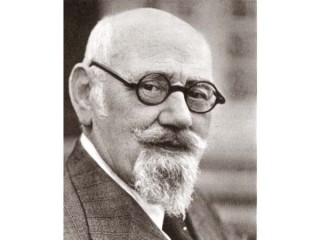
Karl Renner biography
Date of birth : 1870-12-14
Date of death : 1950-12-31
Birthplace : Unter-Tannowitz, Austria
Nationality : Austrian
Category : Historian personalities
Last modified : 2011-08-31
Credited as : Statesman, president od Austria,
The Austrian statesman and president Karl Renner provided his nation with vigorous and able leadership after both world wars.
Karl Renner was born on Dec. 14, 1870, the eighteenth and last child of impoverished peasants in the Moravian village of Unter-Tannowitz near the Austrian border. Forced to leave home at age 14, he eventually studied law at Vienna, where he first became active in the Social Democratic party. Upon receiving a doctor of laws degree in the spring of 1896, he secured a position in the library of the Austrian Parliament, where he remained until his election to Parliament as a Social Democrat in 1907. He established his political reputation primarily in the theoretical realm with the publication of numerous significant treatises on the crucial issues of nationalities and constitution plaguing the Austro-Hungarian Empire at that time. Combining Socialist thought with national sentiment, he envisioned a democratic Austria as the nucleus and model for a Central European confederation of autonomous nationalities.
Always a pragmatic Marxist, Renner devoted himself during World War I primarily to questions of food supply, social security payments, and tax burdens for the lower classes—beyond a continued and impassioned plea for peace and a solution of the nationalities question. He was selected provisional chancellor on Oct. 30, 1918, and then permanent chancellor in February 1919. In this position, which he held until June 11, 1920, he prepared for the abdication of the Emperor, presided over the establishment of the republic, defended the young republic against virulent attacks from extreme left and right, led the Austrian delegation to the peace negotiations of Saint-Germain (1919), and—as chancellor and as foreign minister until October 1920—struggled in vain for unification with Germany.
With the Socialists out of power, Renner, with the exception of his tenure as president of the National Assembly from April 1931 to March 1933, faded increasingly into the background and, during the fascist era of Engelbert Dollfuss, was branded a traitor and briefly imprisoned in 1934. Withdrawn in seclusion during the Nazi occupation and World War II, he was recalled as provisional chancellor by the Soviet occupation authorities on April 27, 1945. Beyond restoring governmental functions in Austria, he used this position with great skill to preserve the unity of Austria and secure free parliamentary elections through difficult negotiations with the Soviets and the Western Allied authorities. As the Second Republic's first president from Dec. 20, 1945, he secured vital respect and legitimacy for the republic both at home and abroad. He died in office in Vienna on Dec. 31, 1950.
















